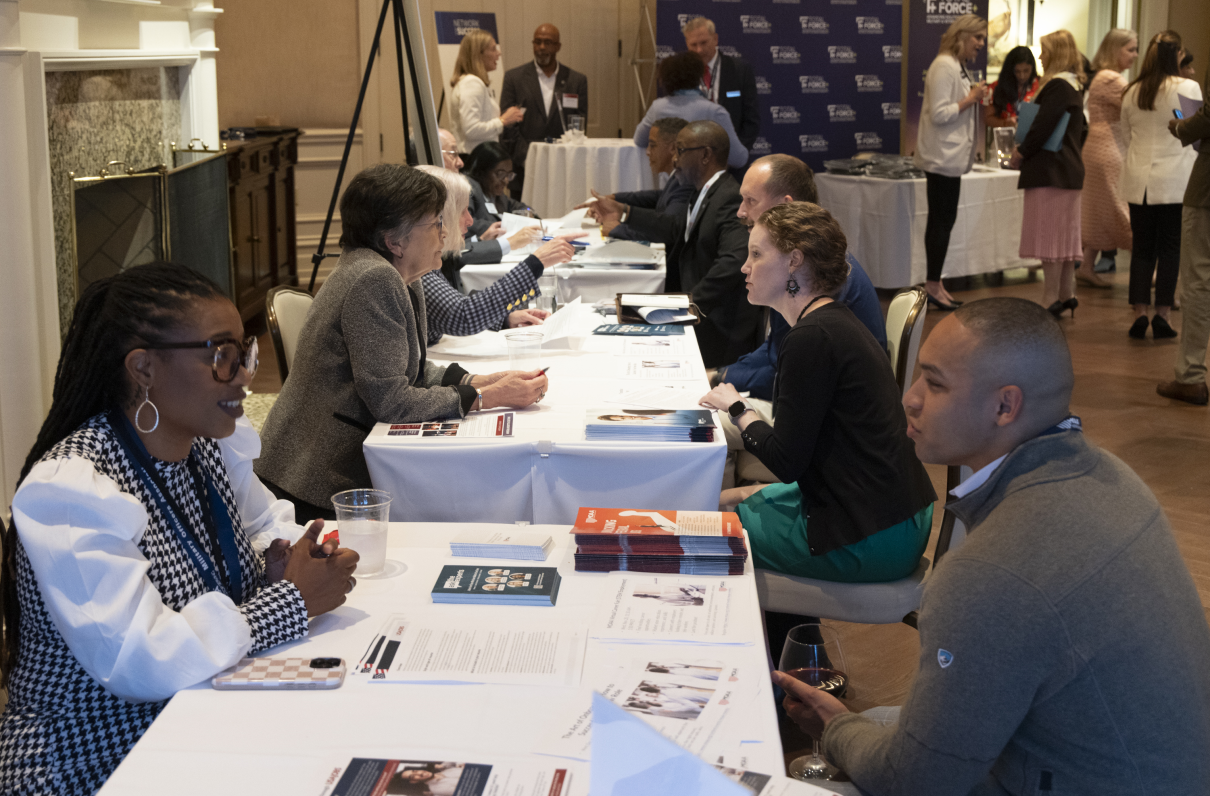Attention, servicemembers and spouses mulling your options for a civilian career: Networking is essential to landing that dream gig.
Go figure, this message reverberated off the walls Oct. 2 at MOAA’s Network for Success event at the Army Navy Country Club in Arlington, Va.
Hundreds of servicemembers, spouses, and veterans gathered to glean career advice from experts and make key connections. If you couldn’t make the event, don’t fret: MOAA offers a calendar of future in-person and virtual events to support your career transition needs.
And please mark your calendars for Oct. 28-29, 2025, when MOAA will launch TotalForce+, a “people first” conference focused on advancing solutions for the military and veteran communities. This event will draw more than 5,000 participants to the Gaylord National Resort and Convention Center in National Harbor, Md., bringing together key decision-makers from the uniformed services community, academia, industry, and nonprofits. Learn more at MOAA.org/totalforceplus.
“It will be an opportunity for exhibitors and contractors who have solutions to have the space where they can talk to DoD decision-makers, talk to VA decision-makers, and talk to rank-and-file servicemembers who are serving, in transition or in retirement,” said Lt. Gen. Brian T. Kelly, USAF (Ret), MOAA’s president and CEO. “I will see you there.”
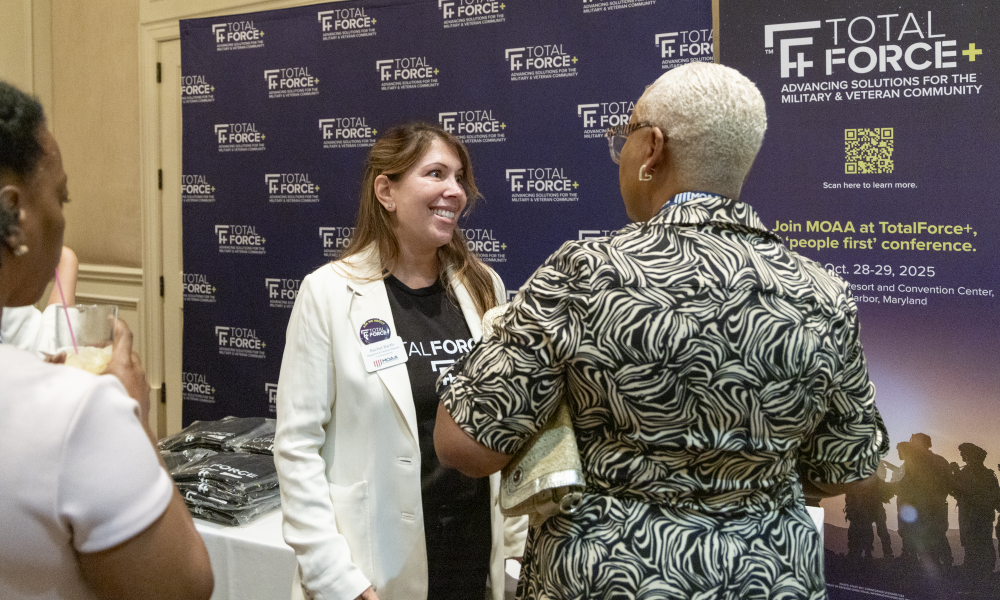
MOAA staff and attendees discuss the upcoming TotalForce+ event during MOAA's networking forum Oct. 2 in Arlington, Va.
For now, here’s some expert career advice curated from our October event:
1. Keep ties with those you’ve helped. When growing your network, it’s not just about those higher up the ladder. Remember to maintain relationships with those you’ve helped.
“In any career and in any transition, it’s not always a straight line,” said Maria Donnelly, program officer for a human rights nonprofit and an Army spouse.
[FROM MILITARY OFFICER MAGAZINE: New Spotlight on Military Spouse Employment]
2. Networking is constant. You got your perfect job? That doesn’t mean networking stops, said Rachel Lovejoy, senior counsel for SpaceX and a veteran of the Army Reserve.
“Work at maintaining your network no matter how comfortable you are in your current job,” she advised.
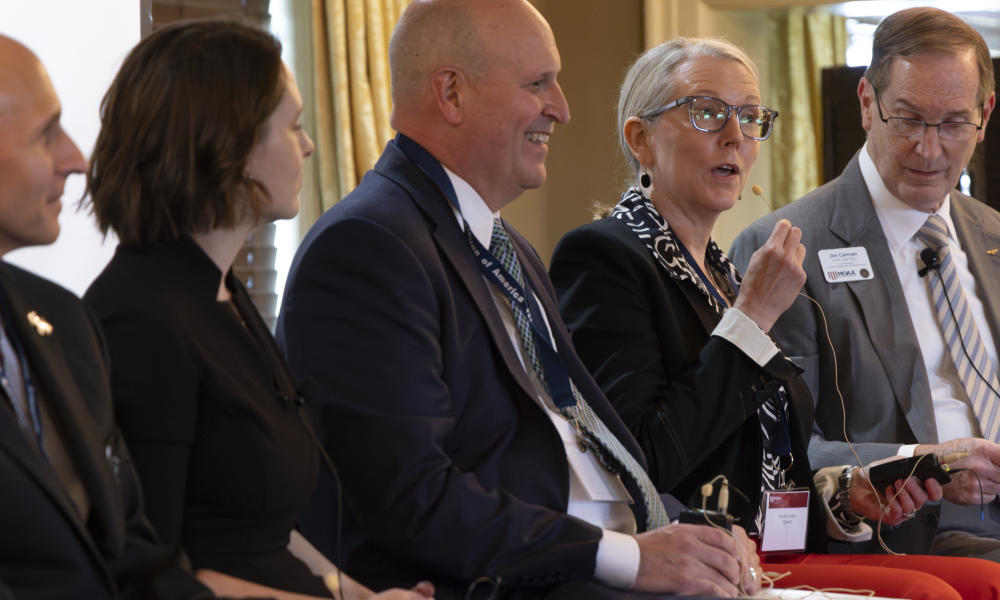
Rachel Lovejoy of SpaceX speaks during a panel discussion Oct. 2 at the Network for Success event, sponsored by The MOAA Foundation, at the Army Navy Country Club in Arlington, Va.
3. It’s never too early to plan ahead. Cmdr. Frank Goertner, USN (Ret), started career planning two years before his planned retirement.
“That was not early enough, in many respects,” said Goertner, who added he felt “three months of free fall” after leaving service.
Goertner is now director of federal and veteran affairs at the University of Maryland-Robert H. Smith School of Business.
[RELATED: More Transition and Career Resources From MOAA]
4. Rejection comes with the territory. Many of our experts encouraged attendees not to give up in the face of rejection, and many shared their own experiences being turned down for a job they were perfect (or even overqualified) for.
“You have to kind of take it on the chin and keep going,” Donnelly said. Don’t forget, YOU HAVE VALUE, and the right job will come along that recognizes your value.”
[RELATED: What to Do When You Don’t Get the Job]
5. Tout those ‘soft skills.’ When interviewing for a job, don’t forget to highlight your interpersonal, communication, and leadership skills, said Capt. Jim Carman, USN (Ret), MOAA’s vice president for council/chapter and member support. The service community is an excellent source of employees who excel in leading cross-functional teams, use outstanding time management, and stay calm under pressure.
[RELATED: How to Show Off Your ‘Soft Skills’]
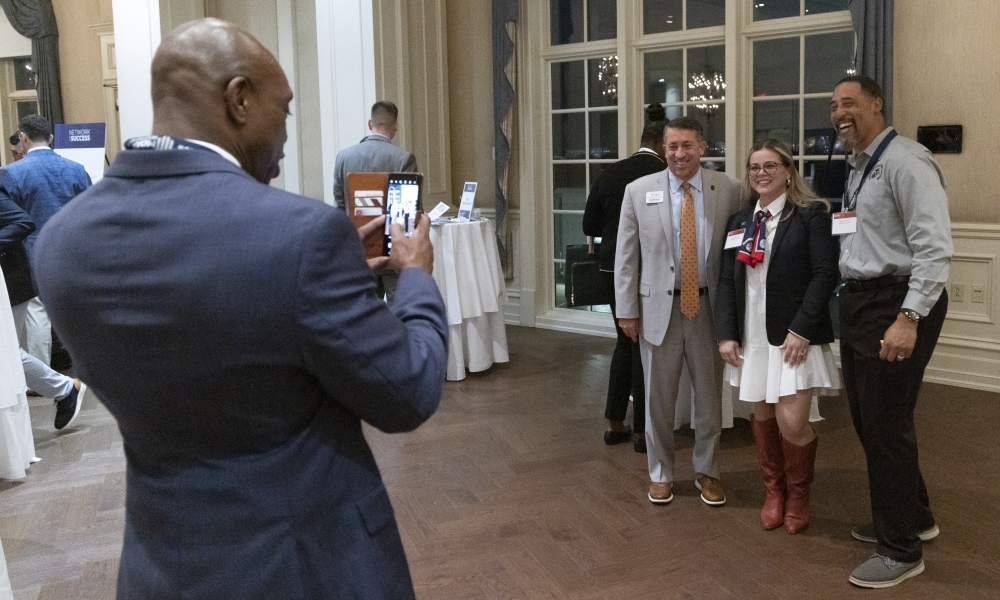
MOAA President and CEO Lt. Gen. Brian T. Kelly, USAF (Ret), poses for a photograph with attendees at the Oct. 2 MOAA networking event.
6. Find a job you are passionate about. How do you know when you have the right job when you’re making your transition? MOAA’s president shared this story:
“I asked my mentor, ‘How am I gonna know?’ and he said, ‘It’s simple BK. You’re going to be in a room full of people and somebody is going to ask what you’re doing and when you say what you’re doing, if it comes out of your mouth really naturally, if you’re enthusiastic about it, you picked the right thing.”
So what if you’re not enthusiastic?
“Find something else to do,” Kelly said.
7. Tailor that résumé ... You may be tempted to “batch apply” for a bunch of jobs online. Your chance at success is slim to none. Use the insights you’ve gained through networking and the job description to help craft a résumé with the correct keywords and you’ll be much more likely to catch the eye of AI technology and real-life HR professionals.
“Make sure you’re spelling things right, and it needs to be a targeted résumé,” said Karen Santiano Francis, training associate and career coach at VetJobs and Military Spouse Jobs. “And, yes – you have to tailor it … every … single … time.”
8. … But keep it short. “Remember the résumé is just to get to the interview. It has to be compelling, short, and grab their attention,” said Lt. Col. Ginni Guiton, USA (Ret), MOAA’s vice president of human resources. “And then you can get to the interview and say everything else you need to say.”
[RELATED: Resume Help From MOAA]
9. Set up a ‘cash stash’ before you transition. “The No. 1 financial tip: building a cash stash for transition is not a sign of weakness or pessimism,” said Joseph “JJ” Montanaro, CFP®, relationship director at USAA’s Military Advocacy Group.
Servicemembers should set aside money covering core expenses for six months to a year before they leave service, he advised.
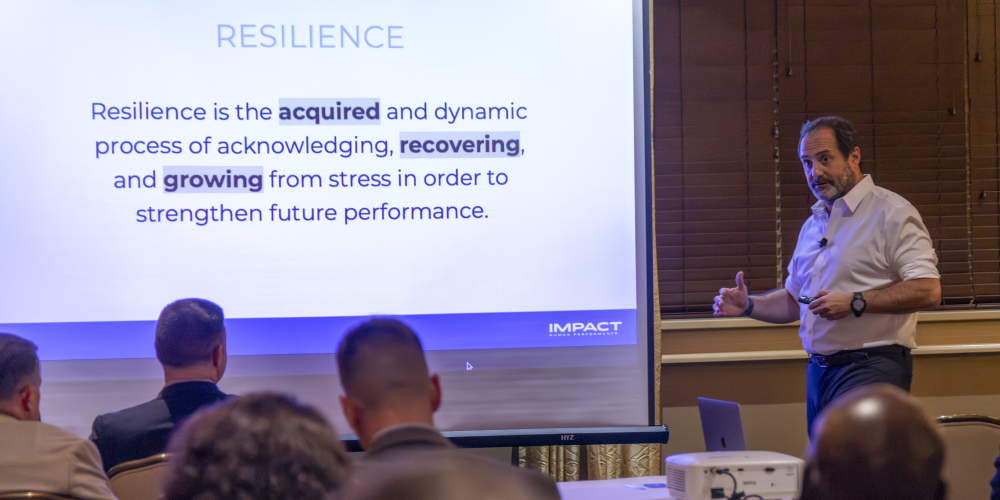
Nick Propper, CEO of Impact Human Performance, delivers a presentation during MOAA's Oct. 2 networking event in Arlington, Va.
10. You can’t avoid stress, but you can recover from it. Transitioning out of the military is of course a time of stress, but Nick Propper from Impact Human Performance highlighted the need for what he calls “intentional recovery” during the day.
“The problem with recovering is everybody thinks it’s something that’s going to come at some fictitious point in the future when everything is settled and everybody is calm,” Propper said. “The truth is that day never really comes. If we’re not recovering well, we’re pushing too far into the discomfort.”
Intrigued? You can attend a virtual webinar with Propper from 2 to 3:30 p.m. Eastern on Oct. 15. It’s free and open to all servicemembers, veterans, spouses, and surviving spouses. Register here.
Thanks to Our Sponsors
Second Lt. Breezie Raddix, a newly commissioned officer in the D.C. National Guard and a Foreign Service Specialist for the State Department, attended the Oct. 2 chiefly to grow her network.
“For me, even if I’m not currently looking for a job, I’m always surrounded by people who may be,” said Raddix, a MOAA Life member. “So, I like to meet people from different industries who I may not connect with in my normal day-to-day life. Here, I got to meet with all kinds of industries, make contacts, and, even if [an opportunity] is not for me, I can pass it on to someone else.”
MOAA’s Network for Success was made possible with generous support from our sponsors. A sincere thank you to the following:
3-Star Sponsors
- AMBA (administrator of MOAA Insurance plans)
- Delta Dental
- Humana Military
- SpaceX
2-Star Sponsors
- JRC Integrated Systems
- Deloitte
Digital and Social Media Content Manager Amber Monks contributed to this report.
